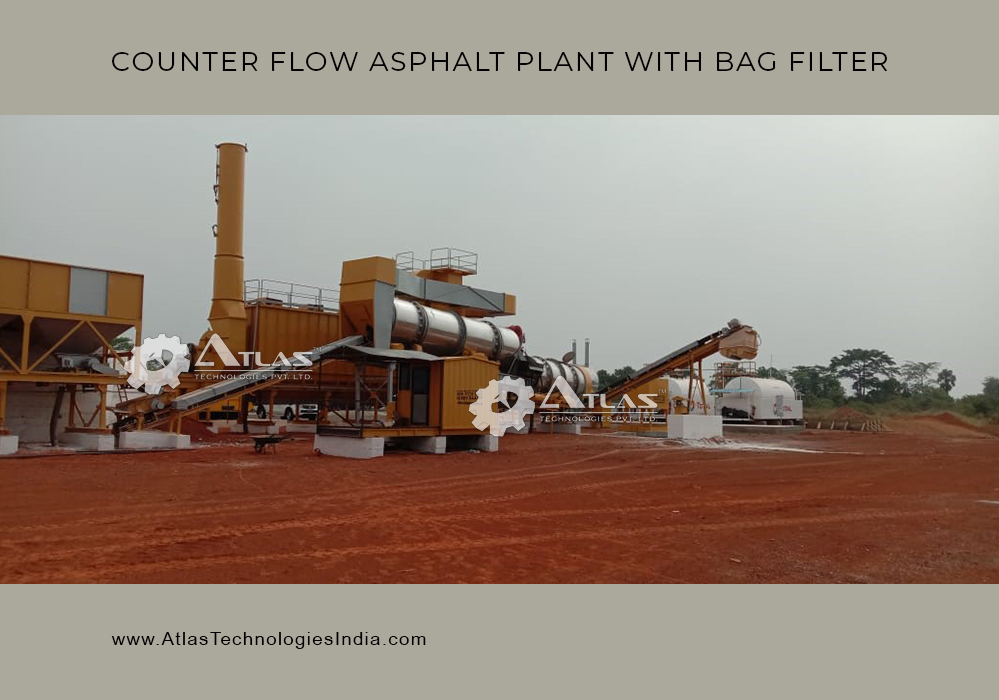There are primarily two variants of asphalt drum mix plants. One is parallel flow and another is counter flow. In the former, mixing and drying happen together in a single drum, whereas in the latter, the processes are done separately.
Every drum mix plant has seven major components, namely:
- Cold aggregate feeder
- Drying and mixing unit
- Bitumen storage and transfer tanks
- Pollution control system
- Storage silos (where the hot mix materials are dumped) and
- Central control panel.

Atlas Counterflow Asphalt Mix Plants
The function of the cold feed storage is to proportion the aggregates based on the precise requirements. It controls the aggregates accurately and feeds them. Cold aggregate feeder bins can be of any number like 2 or 4 or even 7. It all depends on the mix material design to be used.
Before the aggregates are transferred to the mixing chamber, they are weighed and this is synchronized with the weight of the bitumen. In a separate conveyor where the aggregates are charged, load cells are used to equip the conveyor to measure the collective weight of the aggregates when they are moved to the drying drum. Depending on the reading of the aggregate weight, the proportion of bitumen is decided and introduced into the mix.
Single drum plants type parallelflow function by directing the flame and flow of the aggregates parallel to one another and is therefore called parallel flow. This results in less efficiency and more power usage. Alternately, in a double drum asphalt plant, the directions of flame and flow are different, opposite to be precise which is why they are called counter flow plants. The counter flow is designed for efficient use of energy in the burner and complete removal of moisture. In a counterflow plant, the zones for heating and mixing can also be separate leading to efficient product.
Atlas Technologies manufacture both the kinds of asphalt plants, those with integrated mixing and those with separate mixing. In single units, both heating and mixing happens simultaneously in one place and the dust is exhausted from the system after mixing. That results in a good quality hot mix. As opposed to that, double drum asphalt mixers use separate mixing and drying chambers and the residual dust from the aggregate is sucked out by the pollution control device which is located at the very inlet of the aggregate. This makes dust-free aggregates possible even before they are loaded in the drum. As a consequence, the quality of mixture produced is better quality as opposed to single drum parallel flow type plants.
Due to the use of a single drum in a single drum mix asphalt plant, the temperature of the aggregates when heated up cannot always be controlled. In double drum plants, it can be effective controlled even before the mixture is transferred into the mixing drum.
If the burner flame shoots up suddenly and cannot be controlled, this can lead to a fire outbreak inside the system resulting in the burning of the hot mixture when discharged at the outlet. For this reason, separate heating and mixing of aggregates is always safer. In individualized processing, the burner flame does not come in contact with the asphalt or any of the other materials in the mix. That way, the asphalt is never at the risk of coming in contact with extreme temperatures.
Also, in counter flow asphalt plants, there is no wastage as the final output accounts for all input materials. The end product mix material is much better in quality in a counterflow type of asphalt plants.
To know more, contact us here.
